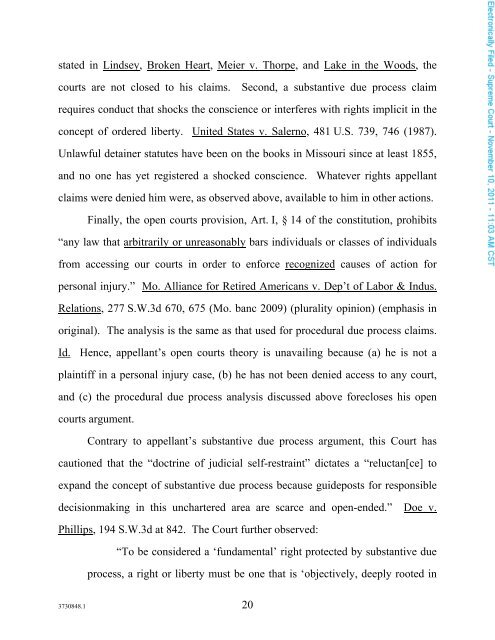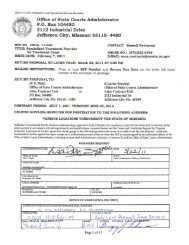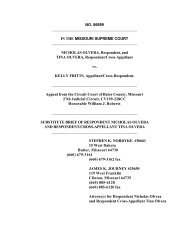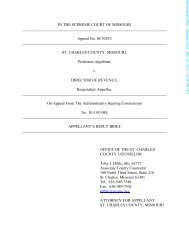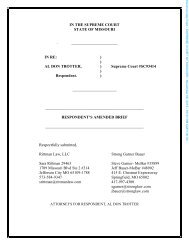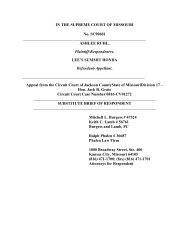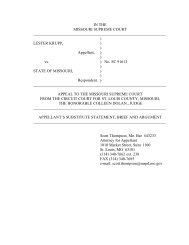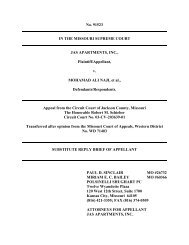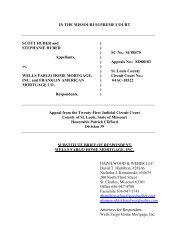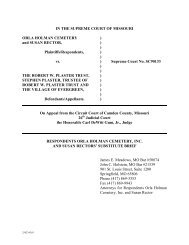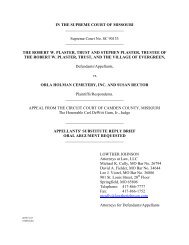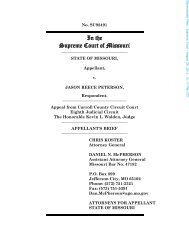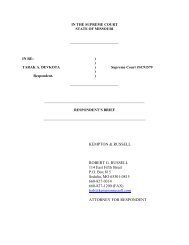Brief for respondent
Brief for respondent
Brief for respondent
Create successful ePaper yourself
Turn your PDF publications into a flip-book with our unique Google optimized e-Paper software.
stated in Lindsey, Broken Heart, Meier v. Thorpe, and Lake in the Woods, the<br />
courts are not closed to his claims. Second, a substantive due process claim<br />
requires conduct that shocks the conscience or interferes with rights implicit in the<br />
concept of ordered liberty. United States v. Salerno, 481 U.S. 739, 746 (1987).<br />
Unlawful detainer statutes have been on the books in Missouri since at least 1855,<br />
and no one has yet registered a shocked conscience. Whatever rights appellant<br />
claims were denied him were, as observed above, available to him in other actions.<br />
Finally, the open courts provision, Art. I, § 14 of the constitution, prohibits<br />
“any law that arbitrarily or unreasonably bars individuals or classes of individuals<br />
from accessing our courts in order to en<strong>for</strong>ce recognized causes of action <strong>for</strong><br />
personal injury.” Mo. Alliance <strong>for</strong> Retired Americans v. Dep’t of Labor & Indus.<br />
Relations, 277 S.W.3d 670, 675 (Mo. banc 2009) (plurality opinion) (emphasis in<br />
original). The analysis is the same as that used <strong>for</strong> procedural due process claims.<br />
Id. Hence, appellant’s open courts theory is unavailing because (a) he is not a<br />
plaintiff in a personal injury case, (b) he has not been denied access to any court,<br />
and (c) the procedural due process analysis discussed above <strong>for</strong>ecloses his open<br />
courts argument.<br />
Contrary to appellant’s substantive due process argument, this Court has<br />
cautioned that the “doctrine of judicial self-restraint” dictates a “reluctan[ce] to<br />
expand the concept of substantive due process because guideposts <strong>for</strong> responsible<br />
decisionmaking in this unchartered area are scarce and open-ended.” Doe v.<br />
Phillips, 194 S.W.3d at 842. The Court further observed:<br />
“To be considered a ‘fundamental’ right protected by substantive due<br />
process, a right or liberty must be one that is ‘objectively, deeply rooted in<br />
3730848.1 20


